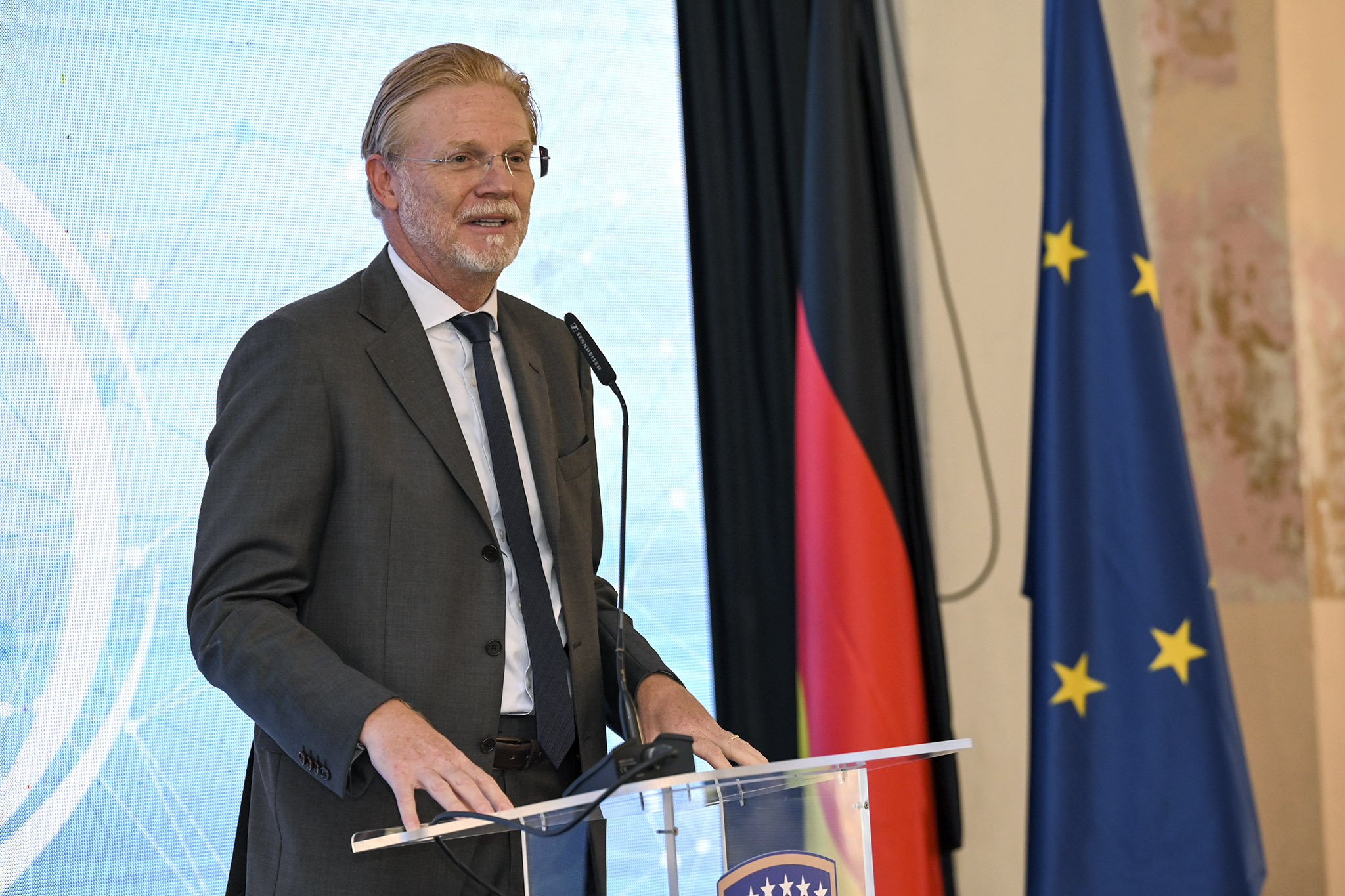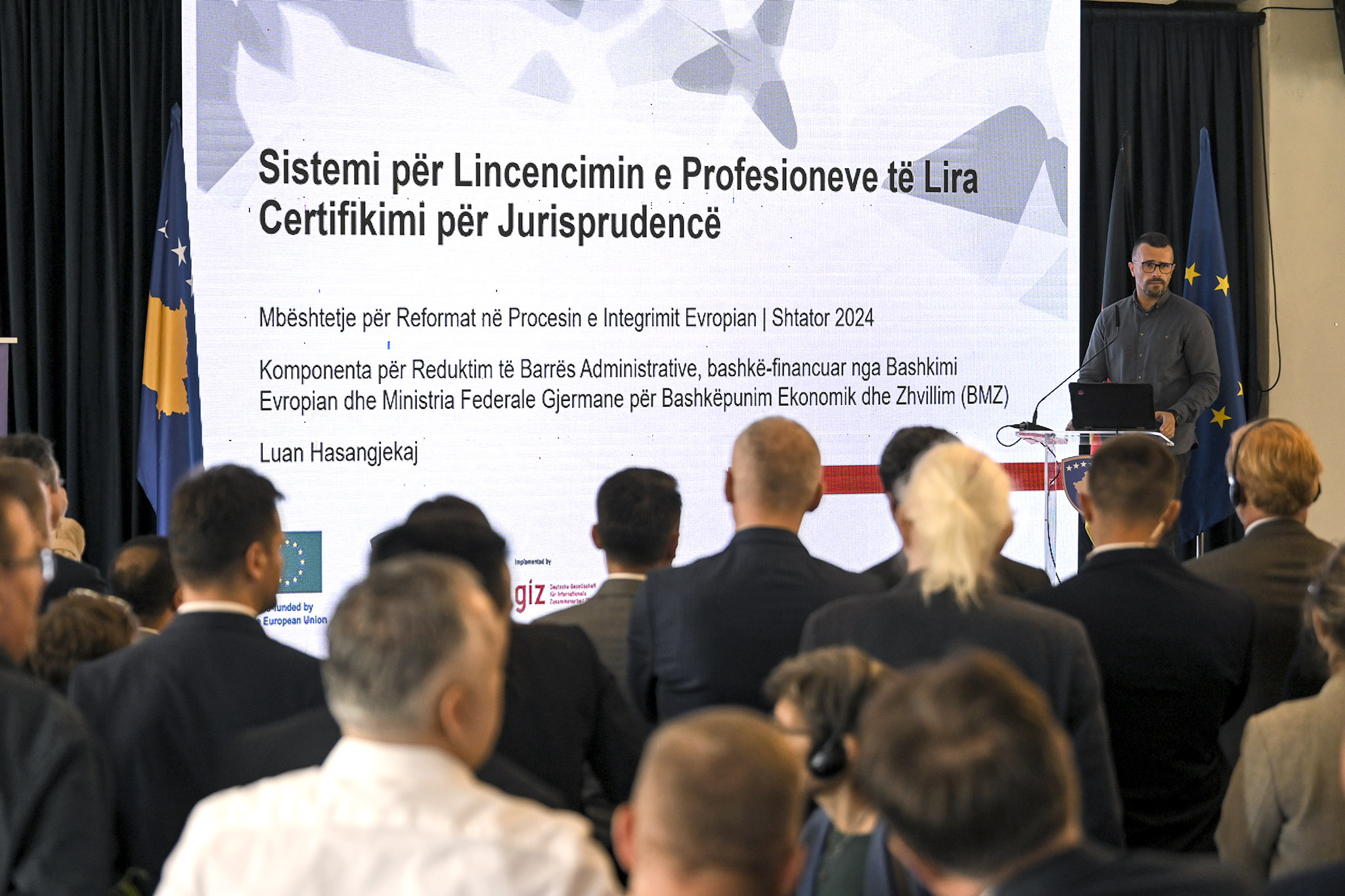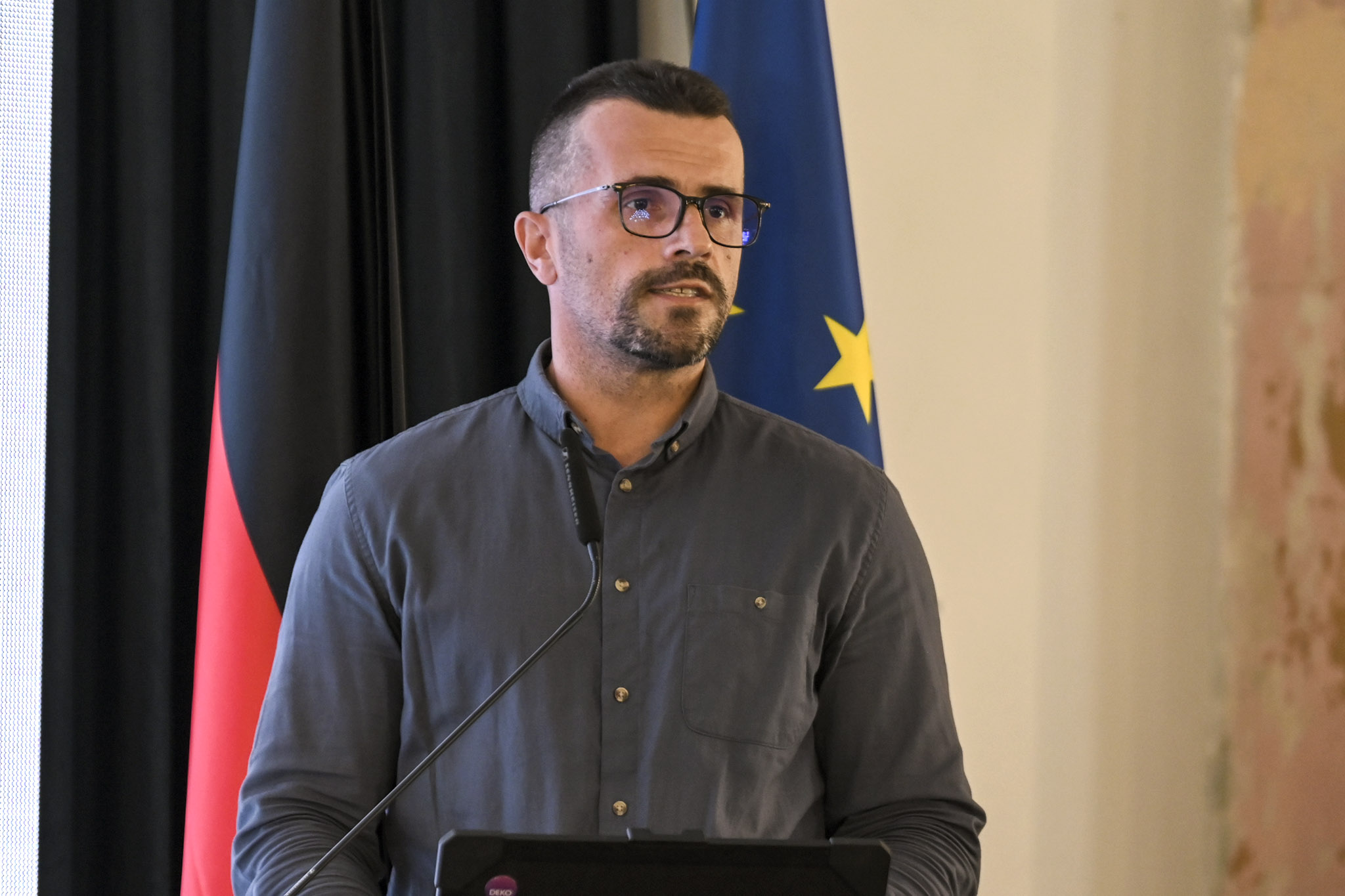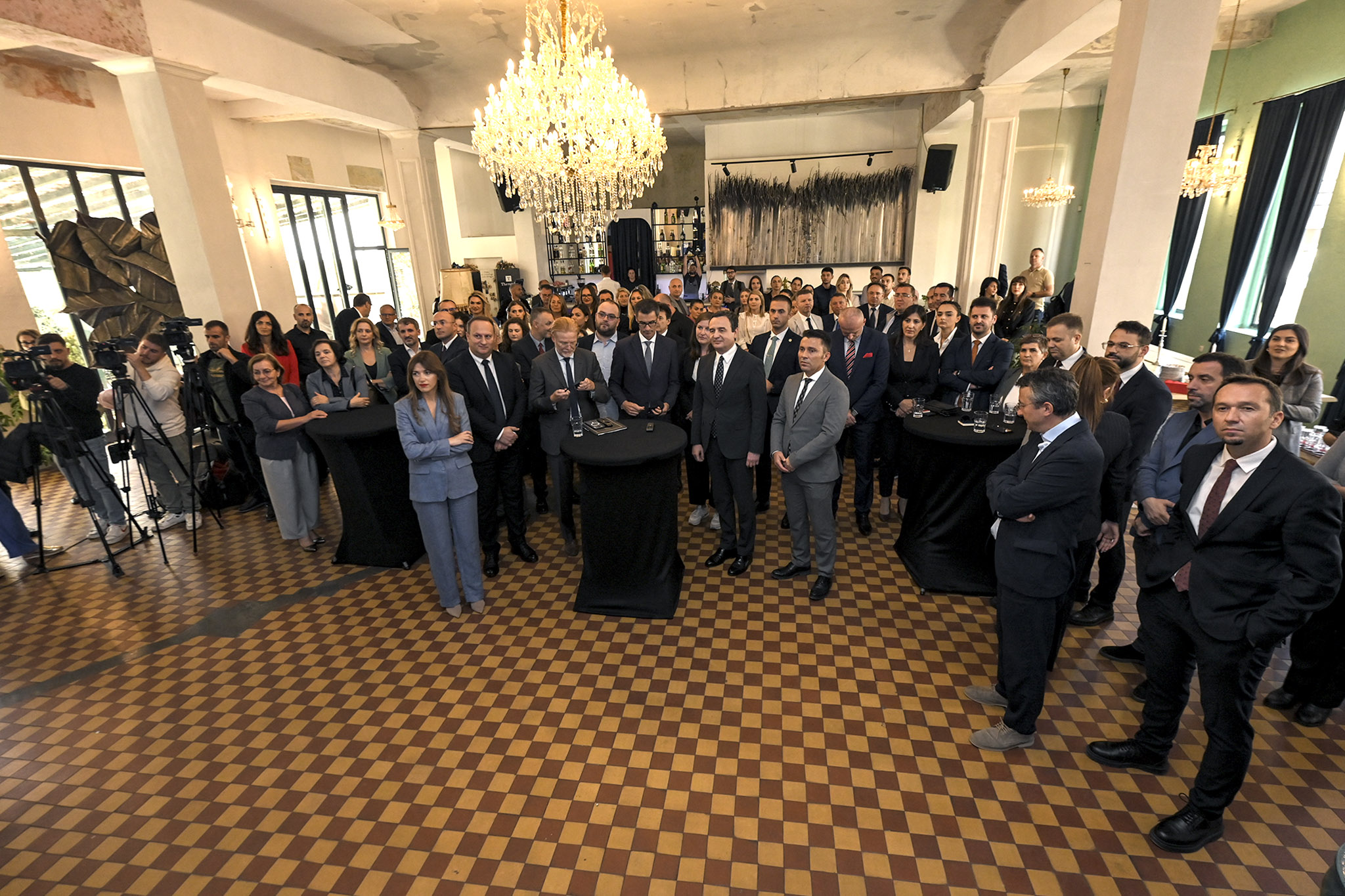Prishtina, 17 September, 2024
The Prime Minister of the Republic of Kosovo, Albin Kurti, participated in the launch of the Certification Module of the Jurisprudence Exam.
In his opening remarks, he said that today, more than ever, digitization is transforming our lives and the way we interact with public services. Therefore, the digitization of government services is a must for any other country that aims to move forward on the path of development and modernization.
Prime Minister Kurti assessed as a very important step the launch of the Certification Module of the Jurisprudence Exam, as part of the digitization of the Licensing System for Free Professions, which contributes to efficiency, transparency, success and meritocracy.
“Strengthening the free professions through strengthening access to justice, as part of our government program and one of the strategic objectives, is still our priority. However, in addition to this, it is also part of our common mission for the rule of law and the functioning of the rule of law”, he said.
Thanking the Ministry of Justice for its dedication and tireless work in increasing the efficiency of procedures, as well as the German GIZ for its support, in the wake of the close cooperation of our Republic with the friendly German people and the European Union in general, the Prime Minister emphasized that the digitization of the services to the full one of the jurisprudence exam will also affect the meritocracy, thus bringing new, prepared, capable cadres who can make an extraordinary contribution to the Republic.
The Minister of Justice, Albulena Haxhiu, said that as the Minister of Justice, she feels responsible for making sure that our legal and administrative system is in line with contemporary requirements. She evaluated as an important step the launch of the Certification Module of the Jurisprudence exam and the Digitization of the Licensing System for Free Professions, saying that this is an additional opportunity to further improve the way we manage and regulate these professions. .
Albert Zogaj, Chairman of the Judicial Council of Kosovo, Johaness Madsen, representative of the European Union Office in Kosovo, as well as Daniel Alker, leader of the German Development Cooperation at the Embassy of the Federal Republic of Germany in Kosovo, also had a word.
Prime Minister Kurti’s complete speech:
Honorable Ms. Albulena Haxhiu, Minister of the Ministry of Justice,
Dear Mr. Albert Zogaj, Chairman of the Judicial Council of Kosovo,
Dear Deputy Ministers in the Ministry of Justice, Blerim Sallahu and Vigan Qorrolli,
Honorable Mr. Johaness Madsen, representative of the European Union Office in Kosovo,
The honorable Mr. Daniel Alker, head of the German Development Cooperation at the Embassy of the Federal Republic of Germany inKosovo,
Honorable Mr. Adnan Rrustemi, Chairman of the Legislation Committee in the Assembly of the Republic of Kosovo,
Honorable Dean of the Faculty of Law, Mr. Avni Puka,
Dear leaders and representatives of the Chambers of Free Professions,
Dear representatives of institutions, civil society organizations, lawyers, professionals in the field,
Dear attendees,
Ladies and gentlemen
Today, more than ever, digitalization is transforming our lives and the way we interact with public services. This new technological era has brought with it numerous advantages that can fundamentally change the way governments serve their citizens. For this reason, the digitization of government services is a must for any country that aims to move forward on the path of development and modernization.
I am pleased that today we launch the Certification Module of the Jurisprudence Exam, as part of the digitization of the Licensing System for Free Professions and as a very important step towards efficiency, transparency, success and meritocracy.
Strengthening the free professions through strengthening access to justice as part of our government program and one of the strategic objectives is still our priority. However, apart from this, it is also part of our common mission for the rule of law and the functioning of the rule of law. Therefore, in addition to the reforms that we are already undertaking in the judicial and prosecutorial systems, these reforms must also include the free professions, especially in the sense of the digitization of services’ actions.
The launch of the Certification Module of the Jurisprudence Exam is the launch of the digitized form of this service, which until now has been carried out in physical form. This module, which also includes the preliminary procedural actions from the application form for taking the exam and making the payment, serves citizens, respectively lawyers, and enables easier, simpler and faster access to the application, giving exam and equipment with certificate. And, in addition to the module that is being launched, i.e. for the jurisprudence exam, such digitization has also been done in Notary, Mediation and Private Enforcement. We already have over 180 digitized services in eKosova and by the end of the year we expect this number to reach over 200. From 2021 until today, 3209 candidates have applied for the bar exam, 747 of them have successfully completed it. Or almost every fourth. So, 747 young professionals who now also have the bar exam. We will continue the diligent work in the direction of completing the infrastructure for the exercise of free professions, starting from supervision and inspection. Infrastructure and ensuring working conditions is our duty, but it is also our obligation to ensure that state agents work in accordance with the law and for the citizen.
Easy and fast access to the service is the obligation of any government that cares for its citizens. By having faster and easier access, citizens are ensured efficiency in dealing with their needs. In the framework of our government program for digital transformation, we are doing a lot of work, starting from the reduction of the administrative barrier to the connection of systems and the interaction of institutions, such as that of the Procurement Review Body with the criminal evidence database, or of e-procurement with the treasury. In all of these, we work non-stop with the aim of facilitating the daily life of our citizens, but also reducing interpersonal contact, which often leads to corruption and thus to the slowing down and politicization of public administration. This is coming to an end now.
Dear attendees,
Transparency is another important factor that comes as a result of digitalization and is a powerful tool in the fight against corruption. When services are offered online, every process can be easily monitored and tracked. This type of transparent approach helps to build trust between citizens and state institutions, significantly reducing the scope for abuse or various illegal interventions. And we all know how important the credibility of our citizens is in justice and in the cadres that are coming. Beyond this, the digitalization of the services to the complete one of the jurisprudence exam will also affect the meritocracy, thus bringing new, prepared, capable cadres who can make an extraordinary contribution to our Republic and for it. The state’s investment in these capacities should also be large, in order to create mutual trust between the state and the youth, the greatest potential that our state has.
I would like to thank the Ministry of Justice for its dedication and tireless work in the direction of increasing the efficiency of procedures, simplifying them and minimizing bureaucracy. And with this, I would also like to thank the German GIZ for the support, in the wake of the close cooperation of our Republic with the friendly German people and the European Union in general.
Thank you.














